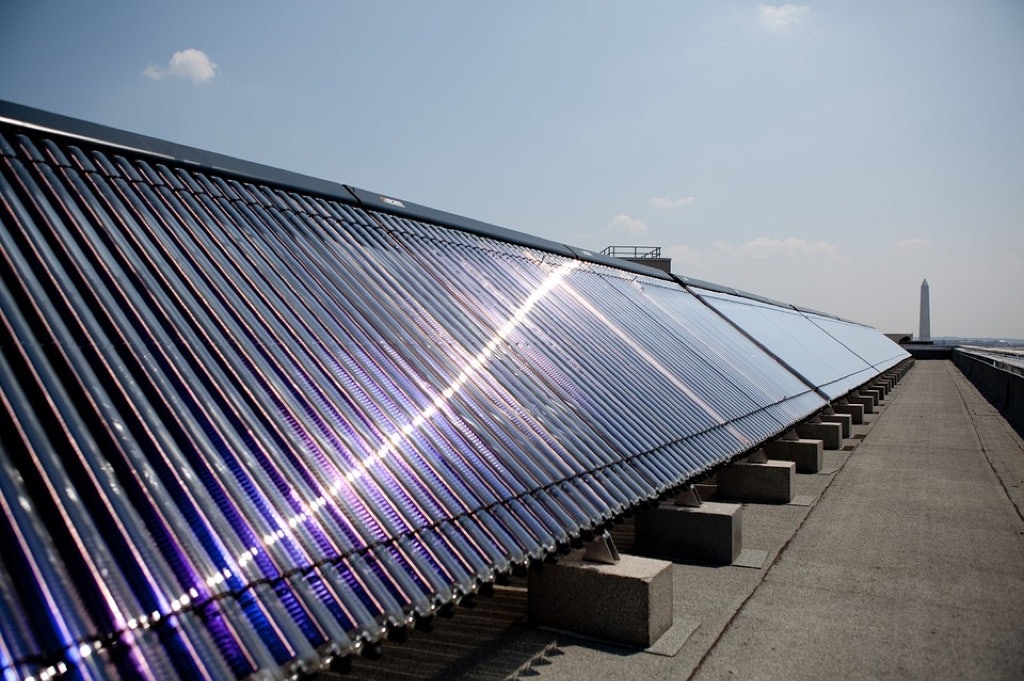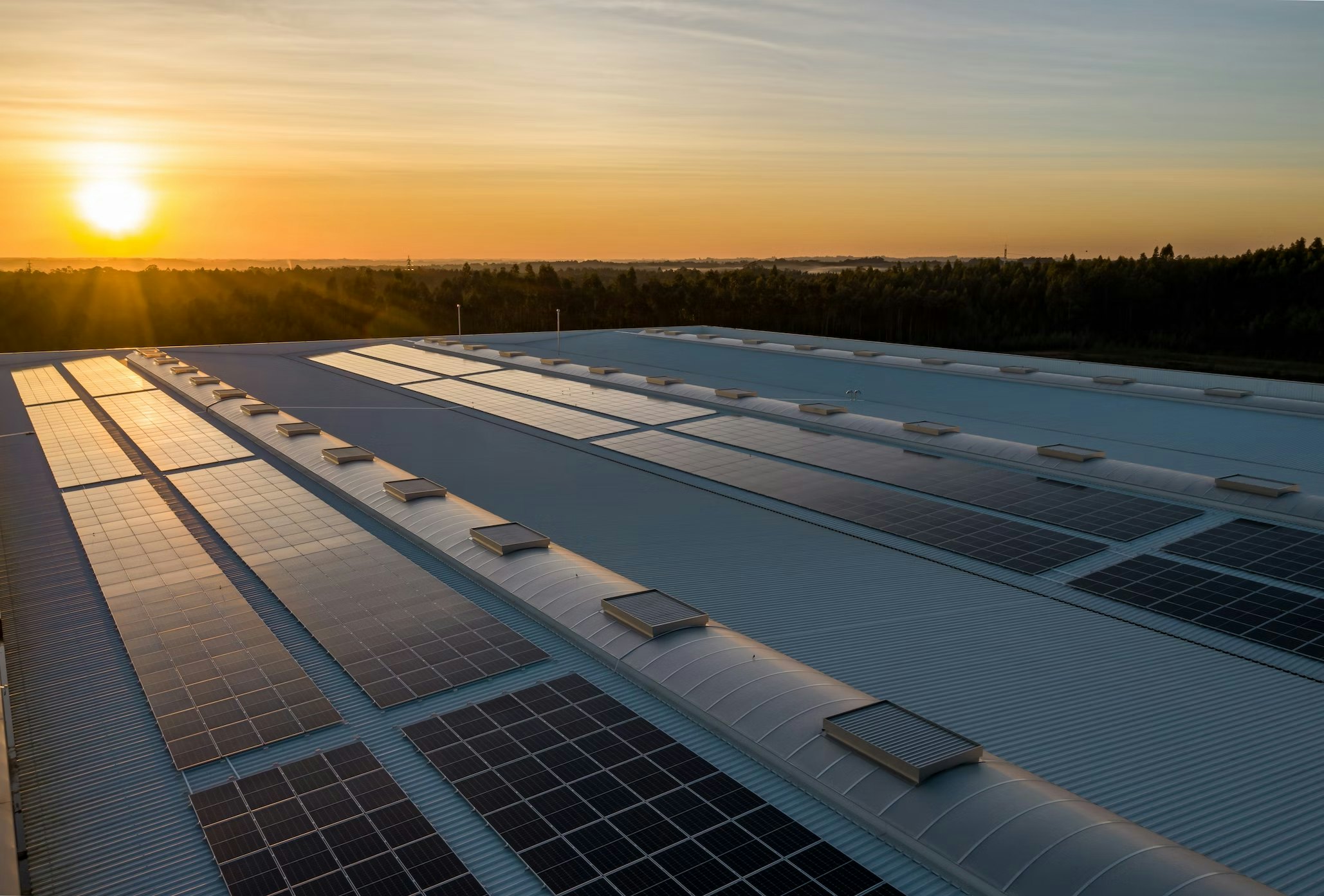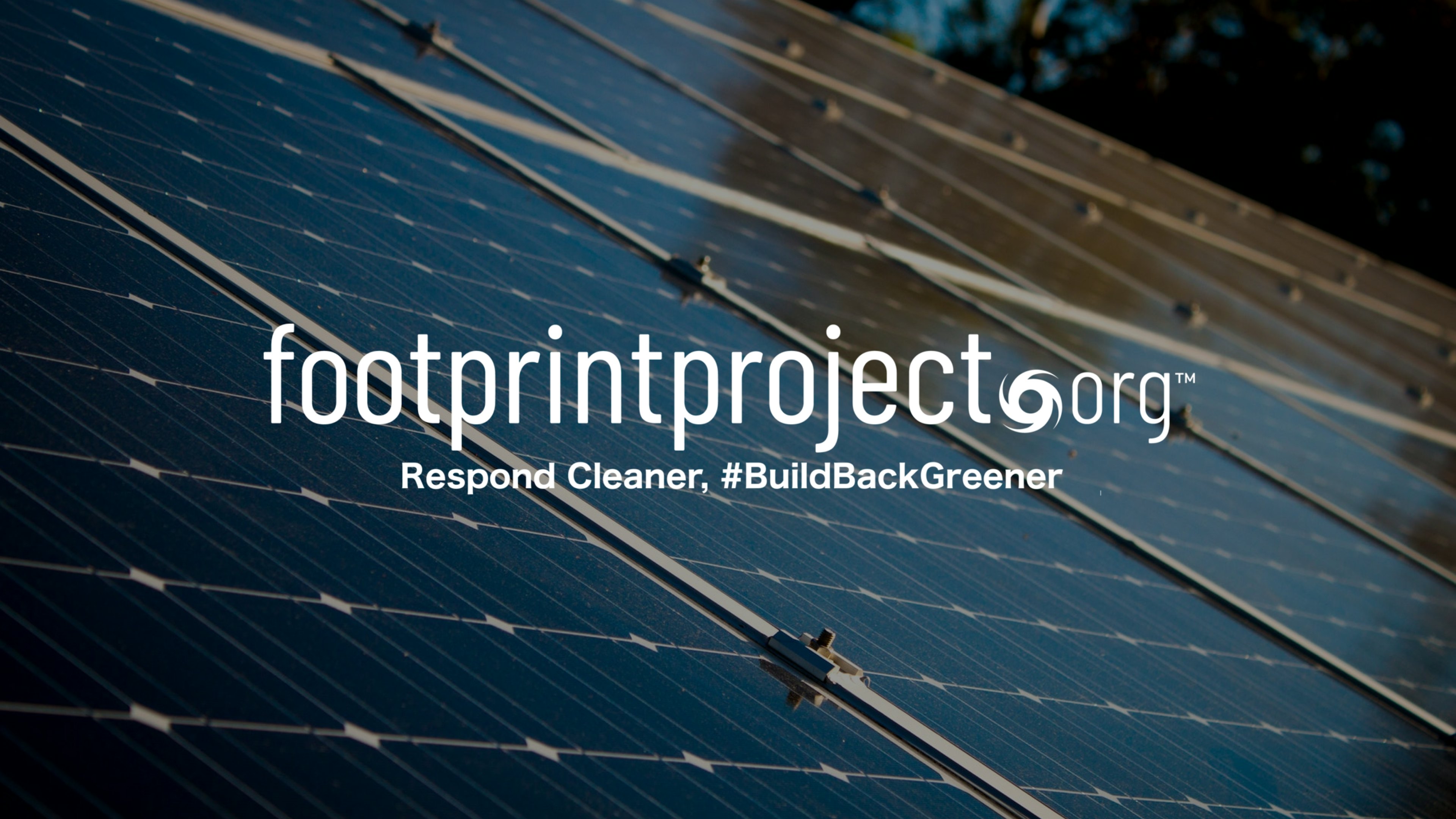The advantages & disadvantages of solar water heaters

This article was originally published in July 2017. It has been updated with new insights as of August 2024.
A lot of energy is used to heat water in our homes. In fact, according to the US Energy Information Administration, about 12% of home electricity consumption goes towards heating water. The good news is that switching to a home solar water heating system can reduce energy usage and associated costs.
To help you better understand solar water heaters and determine if they make sense for your home, this article will cover:
- What is a solar water heater?
- Advantages of solar water heaters
- Disadvantages of solar water heaters
- Solar water heater FAQs
What is a solar water heater?
A solar water heater is a renewable energy system that uses sunlight to heat water for various domestic, commercial, or industrial applications. It typically consists of a series of rooftop collectors that receive solar energy and send it where it’s needed in the building. Some heaters also incorporate heat transfer fluid that transfers energy throughout the system and a continuously heated water storage tank.
Because solar water heaters do not depend on electricity and take energy directly from the sun to heat stored water, they often save homeowners money on electricity costs. . Energy from the sun doesn’t cost anything, of course, so no charge from electrical utilities is needed.
Types of solar water heaters
Active systems: These come in two forms. Direct circulation systems pump household water through collectors, which is then delivered where it's needed in the house. They have automatic controllers that sense when sunlight is available. However, these systems are ineffective in temperatures below freezing.
Indirect circulation systems heat water by pumping it through a heat-transfer fluid that doesn’t freeze. The water is then sent through collectors and a heat exchanger. They work in freezing temperatures but are often more expensive than direct circulation systems.
Passive systems: Two types are available here as well. An integral collector-storage passive system consists of a storage tank, solar collection unit, and pipes that pump cold water into the collector. It suits a home that needs hot water in the day and evening but also doesn't work as well in cold outside temperatures.
A thermosyphon system, on the other hand, works on the principle of warm water rising and cold water sinking. Warm water in the collector rises into the storage tank, which is a reliable configuration. A downside is the weight of the storage tank, which can be a challenge for contractors working on the roof. The system is also a more expensive option.
Advantages of solar water heaters
The advantages of solar water heaters go beyond cost savings and availability of power, which are also realized with solar electric systems.
Other advantages include:
- Environmental benefits: Solar water heaters produce clean and renewable energy without emitting greenhouse gases or other pollutants.
- Less space: Solar thermal panels are usually less space-intensive than photovoltaic panels. Fewer are required to heat water than in an array used to produce sufficient power for a home.
- Energy independence: These systems supply up to 80% of the hot water needed for a home, reducing dependence on utility companies.
- Low maintenance: After installation, little maintenance is required, and a solar water heater can run for up to 20 years.
- Financial incentives: Solar water heaters may qualify for a tax credit via the Residential Clean Energy Credit.
Disadvantages of solar water heaters
It’s a common misconception that maintenance is a disadvantage of solar water heaters, as most systems don’t require a high degree of care. While scaling can occur when minerals are suspended in water and build up as calcium deposits in the system, adding water softeners or mild acidic substances such as vinegar can help prevent this issue. It only needs to be done every three to five years, but this can vary depending on the water quality.
Corrosion, on the other hand, is a legitimate concern. In open-loop active systems, it’s possible that oxygen could rust any iron or steel part. The plumbing components are more resistant if they’re made of copper, brass, bronze, stainless steel, plastic, or rubber. Storage tanks should be lined with glass or plastic to resist corrosion as well.
Also, active systems can overheat if the size of the storage tank isn’t appropriate for the collector. The general rule is that for each square foot of collector, there should be 1.5 gallons of storage. With that in mind, such an issue can be avoided.
Other potential disadvantages of solar water heaters include:
- Solar collectors require sufficient roof space.
- Solar water heaters require direct sunlight to function (i.e., they don’t function properly on cloudy, rainy, or foggy days).
- Annual maintenance is recommended to check the pump and other components.
- Installation requires the use of a new hot water cylinder.
- The upfront cost of purchasing and installing a solar water heater can be high compared to conventional water heating systems.
Several of these disadvantages can be averted through professional installation. Installers can check the roof to confirm that it can support the panels. They can also look at shading and other factors that might impact efficiency.
Getting the most out of solar energy
Enrolling in a community solar program is a great way to support clean energy while saving money on your utility bill. It’s an ideal alternative for renters as well as homeowners who don’t check all the boxes to qualify for rooftop solar. Getting started with Arcadia couldn’t be easier. It only takes a few clicks to find out if you’re eligible. Click the button below to see if you qualify to save on your annual energy bill.

Ready to make an impact? Sign up for Arcadia community solar today!
Get startedSolar water heater FAQs
What are the benefits of using a solar water heater?
The top benefits of solar water heaters include reduced energy costs, lower carbon emissions, increased energy independence, and long-term durability.
What’s the difference between solar water heaters and rooftop solar?
Solar water heaters are designed to heat water using sunlight, typically through rooftop-mounted collectors, while rooftop solar systems (aka photovoltaic solar panels) use sunlight to generate electricity to power various household appliances and devices.
Can a solar water heater replace my traditional gas or electric heater?
While solar water heaters can provide most of your hot water needs, it’s recommended that you keep your existing hot water system for times when solar energy is limited, such as rainy days.


